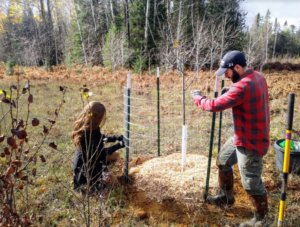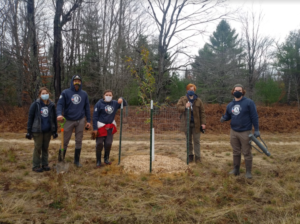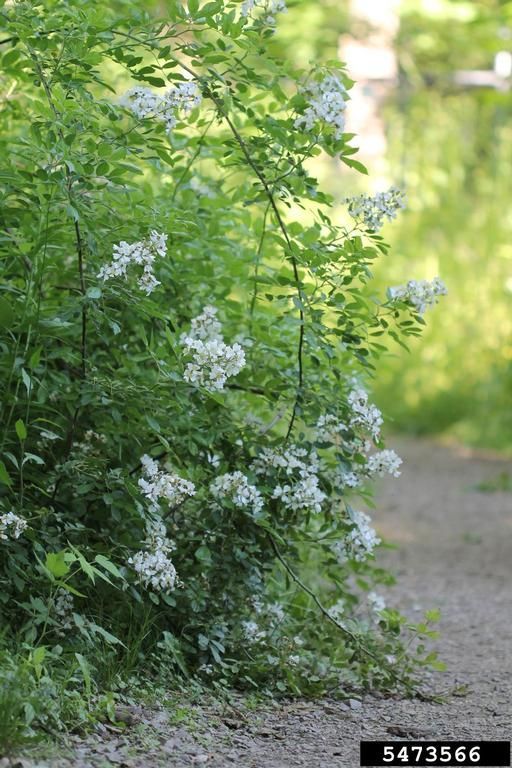OTG Wraps Up 2020 Field Season
This pa
st Saturday, the MUCC 2020 field season wrapped up with an On the Ground native tree planting near Kalkaska. It was a crisp fall day, and I am thankful that it was dry because it was a very good day to be outside planting trees. This particular
 project was funded in part by a 2019 Wildlife Habitat Grant from the Michigan Department of Natural Resources (MDNR) Wildlife Division, funds of which came from the sale of hunting licenses.
project was funded in part by a 2019 Wildlife Habitat Grant from the Michigan Department of Natural Resources (MDNR) Wildlife Division, funds of which came from the sale of hunting licenses.
Led by MUCC’s Habitat Volunteer Coordinator Makhayla LaButte and Gib King of Land Ethics LLC, 22 volunteers assembled on state forest land near Kalkaska to plant 90 soft mast-producing trees. These fruit trees will benefit a variety of wildlife including white-tailed deer, ruffed grouse, wild turkey, and plenty of other game and non-game species. Each tree received two bags of mulch and fencing that will help limit competition, retain moisture and protect the trees from browsing in the first few years of growth.
It was a great day to be volunteering. The best part of any OTG event is meeting fellow conservationists who are passionate about improving wildlife habitat. I was particularly glad to see four other members of the Huron Pines AmeriCorps (HPA) program join to plant trees. It was great to serve side-by-side fellow members to “get things done”.
For those who are unfamiliar with the HPA program, it is a collection of young passiona
 te individuals who are serving in environmentally-focused AmeriCorps positions across Michigan. For example, there are HPA members that serve with the MDNR, land conservancies, non-profits, conservation districts and even with federal agencies. Follow this
link
if you are interested in learning more about the awesome capacity of the HPA program.
te individuals who are serving in environmentally-focused AmeriCorps positions across Michigan. For example, there are HPA members that serve with the MDNR, land conservancies, non-profits, conservation districts and even with federal agencies. Follow this
link
if you are interested in learning more about the awesome capacity of the HPA program.
I am very grateful to have had the opportunity to serve as the HPA member with Michigan United Conservation Clubs(MUCC). One of the best parts of my service experience has been assisting with MUCC’s amazing field programs, On the Ground(OTG) and On the Water(OTW).
Although OTG had an abbreviated 2020 field season due to COVID-19 it was still very successful. The program looks forward to returning to the field in 2021!
The post OTG Wraps Up 2020 Field Season appeared first on Michigan United Conservation Clubs.
Recent Posts



